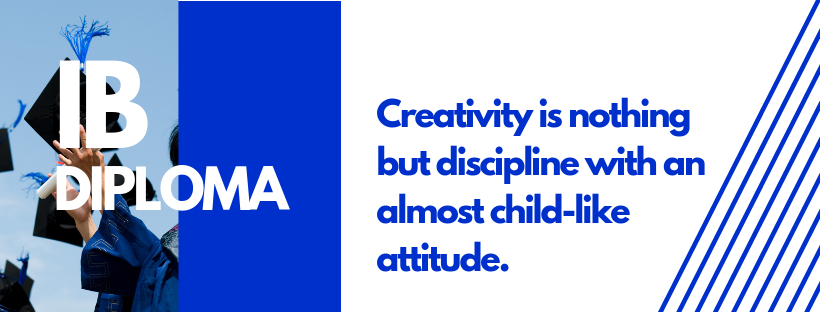The International Baccalaureate (IB) in India
The International Baccalaureate (IB), formerly known as the International Baccalaureate Organization (IBO), which is similar to the CBSE and ISC patterns of education in India, is gradually increasing in popularity all across India. Traditionally considered to be an elitist board having scope only for those who wish to pursue an international education post-school, the IB is now becoming more common amongst regular school students. The IB board was founded in 1968 and has its headquarters in Geneva, Switzerland. It offers four educational programs: the IB Diploma Programme and the IB Career-related Programme for students aged 16 to 19, the IB Middle Years Programme for students aged 11 to 16, and the IB Primary Years Programme for children aged 3 to 12. To teach these programs, schools must be authorized by the International Baccalaureate.
The programme was founded with the objective to “provide an internationally acceptable university admissions qualification suitable for the growing mobile population of young people whose parents were part of the world of diplomacy, international and multi-national organizations” by offering standardized courses and assessments for students aged 16 to 19.
International Baccalaureate North America (IBNA) was established in 1975 by Peter Nehr, International Baccalaureate Africa, Europe and Middle-East (IBAEM) in 1986, and International Baccalaureate Asia Pacific (IBAP) during the same period.
COMPETENCIES OF IB:
The core competencies of IB are as follows:
- The development of a curriculum which is dynamic and continuously evolving to remain relevant in the face of continuous change in all the areas of the world.
- Training of teachers to deliver the changing curriculum
- Assessment of the students based on the changing curriculum.
CRITERIA FOR BECOMING AN IB SCHOOL:
To become an IB school, a school must be authorized by the International Baccalaureate, Geneva. The school must offer at least one of the three programs offered by the International Baccalaureate. The most common program offered by schools is the IB Diploma program. Schools should have a cohort of IB-trained and dedicated teachers and maintain a generous development for the IB courses. Schools should also meet the progressive infrastructural requirements of rich research resources in laboratories and libraries.
With such rigorous requirements, it is common for IB program schools to be amongst the best in any city. This makes these schools highly sought after and the best when it comes to imparting a truly global educational foundation.
PROGRAMS OFFERED BY THE IB:
The IB offers the following programs:
- IB Diploma Program: A two years rigorous pre-university course (grade 11-12) that prepares the students to enter the top universities of the world including in India. IB offers formal external examination after the completion of the DP program for the age group 16-19 years
- IB Middle School Programme: A program for the age group of 11-16 years( grades 6-10)
- IB Primary Years Programme: A program for the age group of 3-12(Grades Nursery-5)
Schools can offer any of these programs.
Each program has independent process of accreditation. IB offers specific authorization for separate programs. Transcending the curriculum goals, the inculcation of the attributes of the “Learners Profile” is the mission of IB. Each IB student is expected to display the traits of a learner’s profile. Lesson plans and units of enquires are designed to ensure that learning outcomes expose the students and prepare them in one or more learners profiles: Inquires, Knowledgeable, Thinkers, Communication, Principled, Open-minded, Caring, Risk Takers, Balanced, Reflective.
IB offers its students a comprehensive program with inter relatedness between different subjects and themes. It provides an opportunity to engage in structured purposeful inquiry thus helping students to construct their own learning and understanding. It helps conduct research into knowledge which has local and global significance .The students should have the ability to relate classroom learning with real life situations and apply in the here and now to bring about immediate changes in own life and environment. Students are able to acquire and practice a range of essential disciplinary and Trans-disciplinary skills. The students are encouraged to develop positive attitudes towards learning, the environment and the people, which ensures that they have the opportunity for involvement in responsible action and community service. The curriculum develops independent thinking, yet appreciation for people with different views.
SUBJECTS OFFERED:
In the IB DP (grades 11 and 12) students are not divided in standard streams. Each student is required to do at least one subject from the following six subject group:
· Language A1(First Language)
· Language 2 B (Second language)
· Individuals and Societies
· Experimental Sciences
· Mathematics
· The arts and electives
The IB DP is fully recognized for entry into the Bachelor’s degree program in all higher education institutes with growing awareness of the merits of the IB DP students. IB students are successfully pursuing their undergrad programs in top colleges of India as well such as : Atma Ram Sanatan Dharma Colege, College of Vocational Studies, DY Patil College, St. Xaviers Mumbai, Wilson, Fergusson College, Lady Shri Ram, Stella Marie among others.
Presently there are around 2094 schools spread over 125 countries all along the globe offering the IB curriculum. There are approximately 62 IB schools in India as of writing this article.
Top IB Schools in India
Following are some of the Top IB Schools in India
1. The Doon School, Dehra Dun
2. Woodstock School, Uttarakhand
3. GD Goenka School, Gurgaon
4. Kodaikanal International School, Tamil Nadu
5. Singapore International School, Mumbai
The Doon School, Dehra Dun
Situated in Dehra Dun, Uttarakhand, Doon School was founded by Satish Ranjan Das, a lawyer from Kolkata. Doon School is a ‘boys-only’ boarding school whose first headmaster was an Englishman. Arthur E. Foot, a science teacher at Eton College. He was the headmaster until the country’s independence, after which he had to leave for England. The Doon School offers Indian Certificate of Secondary Examination (ICSE) and one can select from the medium of education from two boards at the plus 2 level: International Baccalaureate (IB) or Indian School Certificate (ISC) for the final two years. IB has been introduced recently, i.e., in the year 2006, before which the school conducted the ISC examinations only.
The Doon School has had a string of high-profile residents (also known as ‘Doscos’), such as our former Prime Minister Rajiv Gandhi, writers Amitav Ghosh and Vikram Seth, actors such as sons of Naseruddin Shah, i.e., Imaad Shah and Vivaan Shah and Olympic winner Abhinav Bindra. The Doon School has also been ranked as the best residential school that India has ever produced by the likes of Outlook, BBC, and the Times of India.
Woodstock School
Located at the ‘Queen of hills’, Mussoorie (Uttarakhand), Woodstock School is an international residential school which, unlike Doon School, broadly believes in co-education. It is one of the most well-known boarding schools of South Asia since it provides a number of options for students who graduate from there. A student who passes out from Woodstock may also be awarded a diploma that is equivalent to a high school diploma of the United States (since it is accredited by the Middle States Association). This school also offers IGCSE exams, SAT and advanced placement test prep. The most brilliant aspect of this school is the fact that it produces a culture wherein students from all over the world come together and are introduced to new cultures. According to Outlook, India, Woodstock stands tall as one of best international schools of the country.
GD Goenka School, Gurgaon
Founded by the very famous, Gayatri Devi Goenka group in the year 1994, GD Goenka Public School is in Vasant Kunj, New Delhi, and is among the most expensive schools of the country. It is affiliated to the CBSE board of education and constitutes of about 18 branches. Centrally air-conditioned, this school offers day boarding besides having a residential curriculum. You can avail programs beginning from nursery all the way to MBA, and you can select an education of the IGCSE or an IB.
Kodaikanal International School, Tamil Nadu
Similar to Woodstock, this one is an independent, coeducational, residential school located in Kodaikanal, Dindigul, and Tamil Nadu. This school was the first in the country to offer an International Baccalaureate Diploma Program (IB) and the Middle Years Program (MYP), along with being recognized by the Association of India Universities.
Some of the known alumni of this school include the US ambassador Robert F. Goheen and Congressman Chris Van Hollen.
Singapore International School, Mumbai
Located in Mumbai, this school offers IGCSE and IB programmes, and is also coeducational. This school is spread over a whopping 10 acres of land and is open for Indian students as well as students from abroad. You also have a choice between availing day boarding and weekly boarding facilities, and is one of the best known IB schools of the country.
Some of the best IB Schools in Kolkata:-
The IB curriculum is relatively new in Kolkata and is still not yet fully accepted among the general school-going population. However, with a gradual rise in popularity, it is only a matter of time before it catches on in the city of Kolkata. Some of the best IB curriculum schools in Kolkata are:
· Calcutta International School, Anandapur, Kolkata
· The Heritage School, Kolkata
· Modern High School for Girls
If you have any further queries with regard to the IB curriculum or international education opportunities then feel free to reach out at michael@eduaims.in

